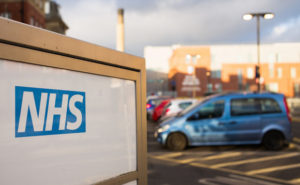NHS properties to switch to green electricity

The NHS is responsible for around five per cent of the UK’s greenhouse gas emissions, making decarbonising healthcare key if the UK is to meet its 2050 net zero target
More than 10 per cent of the NHS estate is to switch to 100 per cent renewable electricity from April as part of a landmark deal, NHS Property Services (NHSPS) announced yesterday.
The green electricity will be provided as part of two new energy contracts signed by the firm, with British Gas’s business arm set to provide 100 per cent renewable electricity and Corona to provide natural gas to all NHS properties across England by April 2020.
NHSPS is responsible for around 11 per cent of the NHS estate, managing more than 3,500 properties including hospitals, health centres, and GP surgeries.
The move to 100 per cent renewable electricity will offset more than 40,000 tonnes of CO2 per year, the firm said, adding that the switch to clean electricity would not increase costs to tenants or the NHSPS itself.
“Switching to 100 per cent renewable electricity for all our buildings is a landmark moment in efforts to transform our NHS portfolio into a sustainable estate,” said Martin Steele, chief operating officer at NHS Property Services.
“We take our responsibility towards reducing the environmental impact of our buildings very seriously. This move will also help us to improve the wellbeing of our people and patients whilst reducing NHS operating and maintenance costs.”
Health and care systems are responsible for 5.4 per cent of the UK’s carbon footprint, a recent report showed. Earlier this year, NHS England Chief Executive Simon Stevens announced plans to accelerate the body’s efforts to tackle climate change as part of the For A Greener NHS campaign. An expert panel chaired by Dr Nick Watts is now working to set out how the health service can reach net zero emissions ahead of the UK’s overall 2050 deadline, considering where changes to the service’s medical equipment and pharmaceutical supplies could cut emissions, and how technology could be used to reduce the number of outpatient appointments.
The NHS will also take action immediately, Stevens added, with a proposed new NHS Standard Contract calling on hospitals to reduce carbon emissions from buildings and estates, whilst switching to less polluting anaesthetic gases, better asthma inhalers, and encouraging more active travel for staff.
Dylan Crompton, head of customer solutions for British Gas Business, welcomed the contract, which he said would “pave the way to a more sustainable health service”.
“As we all look towards reducing our emissions in order to meet the government’s net zero targets, switching to a renewable electricity tariff is one of the simplest yet most effective measures any organisation can take,” he said.
The UK government adopted the goal to become net zero carbon by 2050 in June last year, updating a previous target to have reduced emissions by 80 per cent by the same date.
source (businessgreen.com)

